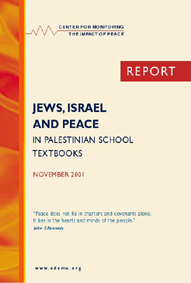Antisemitism has increased greatly in the Arab world since the beginning of the 20th century, for several reasons: the dissolution and breakdown of the Ottoman Empire and traditional Islamic society; European influence, brought about by Western imperialism and Arab Christians; Nazi propaganda and relations between Nazi Germany and the Arab world; resentment over Jewish nationalism; the rise of Arab nationalism; and the widespread proliferation of anti-Jewish and anti-Zionist conspiracy theories.

The Middle East is a geopolitical region encompassing the Arabian Peninsula, the Levant, Turkey, Egypt, Iran, and Iraq.

West Asia, also called Western Asia or Southwest Asia, is the westernmost region of Asia. As defined by most academics, UN bodies and other institutions, the subregion consists of Anatolia, the Arabian Peninsula, Iran, Mesopotamia, the Armenian highlands, the Levant, the island of Cyprus, the Sinai Peninsula and the South Caucasus. The region is separated from Africa by the Isthmus of Suez in Egypt, and separated from Europe by the waterways of the Turkish Straits and the watershed of the Greater Caucasus. Central Asia lies to its northeast, while South Asia lies to its east. Twelve seas surround the region (clockwise): the Aegean Sea, the Sea of Marmara, the Black Sea, the Caspian Sea, the Persian Gulf, the Gulf of Oman, the Arabian Sea, the Gulf of Aden, the Red Sea, the Gulf of Aqaba, the Gulf of Suez, and the Mediterranean Sea. West Asia contains the majority of the similarly defined Middle East. The Middle East is a political term that has changed many times depending on political and historical context while West Asia is a geographical term with more consistency. It excludes most of Egypt and the northwestern part of Turkey, and includes the southern part of the Caucasus.

Najran, is a city in southwestern Saudi Arabia. It is the capital of Najran Province. Designated as a new town, Najran is one of the fastest-growing cities in the kingdom. Its population grew from 47,500 in 1974 to 90,983 in 1992, 246,880 in 2004, and 381,431 in 2021. The city's population mostly originates from the ancient tribes of Hamdan.
Rafida refers to those Shia Muslims who 'reject' the 'legitimacy' of the caliphates of Abu Bakr, Umar, and Uthman, in favor of Ali ibn Abi Talib, the cousin and son-in-law of the Islamic prophet Muhammad.

Public education in Saudi Arabia—from primary education through college—is open to every Saudi citizen. Education is the second-largest sector of government spending in Saudi Arabia. Saudi Arabia spends 8.8% of its gross domestic product on education, which is nearly double the global average of 4.6%. Saudi Arabia is an Islamic country and therefore Islam is interwoven in every part of society, also in education. Islamic studies are part of the education system alongside scientific and social studies that vary from educational institution to another. Important goals of education in Saudi Arabia are to teach the students the economic, religious and social norms of the country. They also want to reduce the high illiteracy. The education system consists of 3 levels: primary education, intermediate education and secondary education.

The Islamic Saudi Academy of Washington was an International Baccalaureate (IB) World university preparatory school in Northern Virginia, accredited with the Southern Association of Colleges and Schools and authorized by IB in December 2008. It had classes from pre-kindergarten to twelfth grade, and had a final enrollment of more than 1,200 students.
The Saudi Arabian textbook controversy refers to criticism of the role of the content of school textbooks in Saudi Arabia in the perpetration of the September 11 attacks.
Textbooks in Israel and the Palestinian territories have emerged as an issue within the larger Israeli–Palestinian conflict.
The Institute for Monitoring Peace and Cultural Tolerance in School Education (IMPACT-SE), formerly known as the Center for Monitoring the Impact of Peace (CMIP), is an Israeli non-profit organization that monitors the content of school textbooks.

The history of the Jews in Saudi Arabia begins in classical antiquity.

The history of the Jews in Qatar is relatively limited unlike some of the neighboring countries in the Gulf of Persia.

Jews, Christians, War and Peace in Egyptian School Textbooks is a March 2004 publication by the Institute for Monitoring Peace and Cultural Tolerance in School Education (IMPACT-SE), known as CMIP at the time of publication. The publication analyzes how Egyptian school textbooks portray war, peace, and the 'Other' -- namely Jews and Christians.
The article describes the state of race relations and racism in the Middle East. Racism is widely condemned throughout the world, with 174 states parties to the International Convention on the Elimination of All Forms of Racial Discrimination by April 8, 2011. In different countries, the forms that racism takes may be different for historic, cultural, religious, economic or demographic reasons.

Palestinian Textbooks: From Arafat to Abbas and Hamas is a March 2008 publication by the Institute for Monitoring Peace and Cultural Tolerance in School Education (IMPACT-SE) and the American Jewish Committee (AJC). The book summarizes former analyses by IMPACT-SE of Palestinian Authority textbooks, beginning in 1998, and outlines how Palestinian school textbooks have changed or not changed under the leadership of Yassir Arafat, Mahmoud Abbas, and Hamas regarding the portrayal of peace and the 'Other', namely Israel and Jews.

Jews, Israel and Peace in Palestinian School Textbooks is a November 2001 publication by the Institute for Monitoring Peace and Cultural Tolerance in School Education -- then the Center for Monitoring the Impact of Peace -- on how Palestinian school textbooks portray peace and the 'Other', namely Jews and Israel. The publication is the first in a series of textbook analyses on Palestinian textbooks, with the most recent publication, Palestinian Textbooks: From Arafat to Abbas and Hamas, published in March 2008.

Islam is the state religion of Saudi Arabia. As the "home of Islam" where the prophet of Islam lived and carried out his mission, the kingdom attracts millions of Muslim Hajj pilgrims annually, and thousands of clerics and students who come from across the Muslim world to study. Approximately 100% of its citizens are Muslim and most of its large population of foreign workers are as well. Hanbali is the official version of Sunni Islam and it is used in the legal and education systems. The Basic Law of Saudi Arabia states that it is the duty of every citizen to defend Islam.

Saudis or Saudi Arabians are an ethnic group and nation native to the Kingdom of Saudi Arabia, who speak the Arabic language, a Central Semitic language, and share a common ancestry, history, and culture. They are mainly composed of Arabs and live in the five historical Regions: Najd, Hejaz, Asir, Tihamah and Al-Ahsa; the regions which the Kingdom of Saudi Arabia was founded on or what was formerly known as the Kingdom of Hejaz and Nejd in the Arabian Peninsula. Saudis speak one of the dialects of Peninsular Arabic, including the Hejazi, Najdi, Gulf and Southern Arabic dialects, as a mother tongue.
Saudi Arabian media often attacks Jews in books, news articles, and mosques with what some describe as antisemitic satire. Saudi Arabian government officials and state religious leaders often promote the idea that Jews are conspiring to take over the entire world; as proof of their claims, they publish and frequently cite The Protocols of the Elders of Zion as factual.

Marcus Sheff is an Israeli-British non-profit chief executive officer (CEO), former media executive and journalist.













